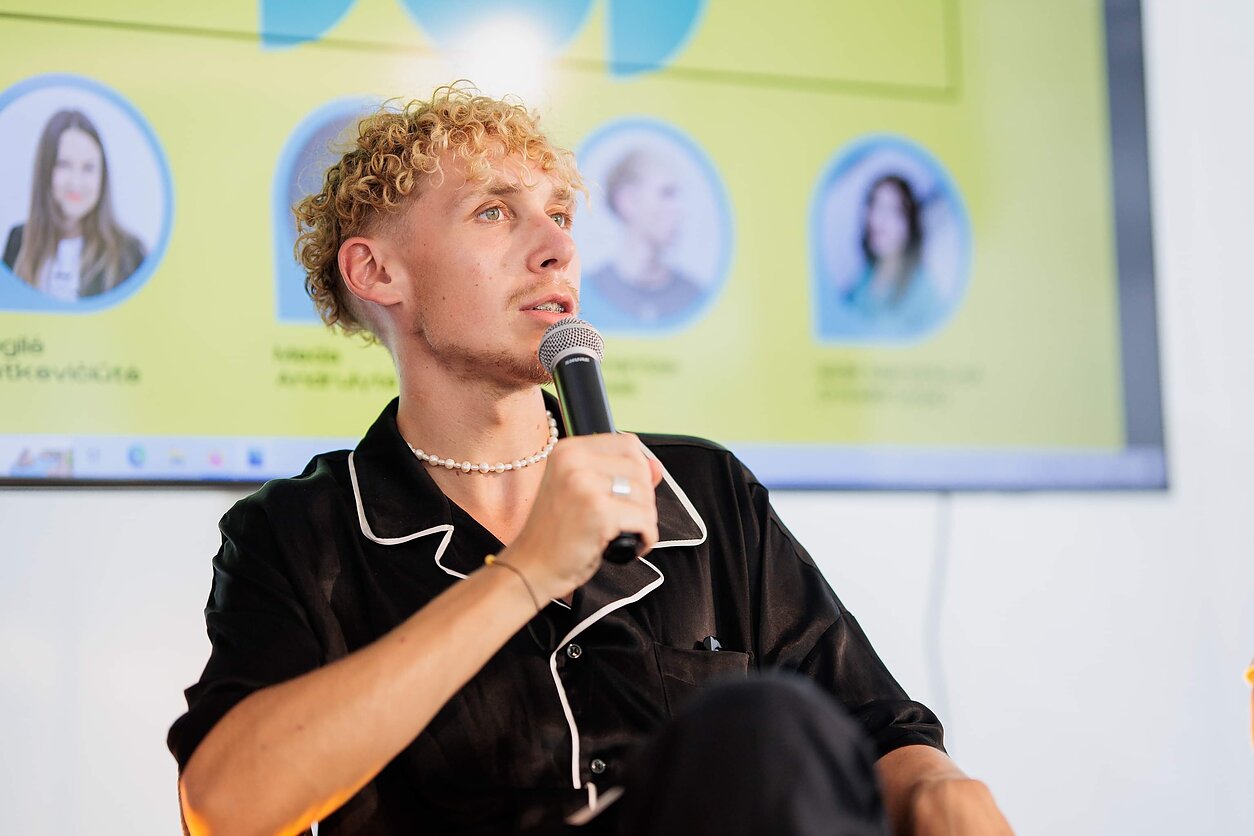Lithuania held two elections this year – for the President and the European Parliament (EP). Domantas Katelė, an alumnus of the Institute of International Relations and Political Science at Vilnius University (VU IIRPS), who works as an advisor to the Ministry of Social Security and Labour, says that the low turnout of young people is disappointing.
“These results are influenced by the fact that the role of the President is somewhat exaggerated in our society – he is imagined as a politician who is above everything else. Meanwhile, the EP elections are secondary and receive much less public attention than others. Moreover, the working principle of the EP remains complex, even for people interested in politics. We need to make significant changes to get more young people involved in the elections”, urges Katelė.
Where does youth civic engagement come from?
The VU IIRPS alumnus argues that the low level of young people’s involvement in elections reflects a certain disillusionment with traditional participation. At the same time, concrete change is easier for young people to achieve by engaging in their communities.
“I started working in youth NGOs as a teenager in my hometown of Panevėžys. At 15, I decided to make politics my life, so I enrolled at VU IIRPS because it was and is the best place to prepare for it”, says Katelė.
“All these years later, I am still a bit saddened by the low level of involvement, but I am glad that I grew up in a very active community at IIRPS, where we used to joke as students that our Christmas is during the elections. I still feel this joy whenever I put my ballot paper in the box.”
D. Katelė notes that although young people’s participation in democratic processes is quite low, many of them express their civic position in other forms through actions, pickets, or social media campaigns. He is impressed by young people’s behavior in the face of the crises of recent years when they have been at the forefront and bravely carried the banner of democratic and Western values.
“We sometimes misinterpret citizenship as only participation in political or democratic processes. I interpret citizenship simply – a desire to leave behind a better legacy. For me, a civic person picks up litter or cleans their staircase”, says Katelė.
Civil society – the result of a strong community
A young person is often distracted by many prospects and choices. “When I was working in the media, I thought that it would have made sense to study journalism, and when I was the president of the Council of Lithuanian Youth Organisations and held a position of political trust, I thought about law, but in the end, I always realized that everything happened the way it was supposed to – VU IIRPS was the right choice.”
For young people unsure about their future, Katelė recommends trying their hand at non-governmental organizations. “I think that young people often find their way in communities.”
He recalls his years as a social activist with nostalgia: “That time was at the same time extremely windy and very enriching. Although, of course, I did not manage to avoid mistakes, and it seems that I would have done many things differently and prioritized things differently, today I remember my time at the IIRPS only well because it is a place where I grew up, made friends and learned a lot. In addition, most of the lecturers made a great impression as specialists in their field, who can transmit information to the students incredibly smoothly and with high quality.”
According to D. Katelė, every member of society – parents, teachers, lecturers – should use their example to educate a civil and responsible young person.
“I advise parents to let their children put the ballot in the ballot box for them, thus directly developing the habit. Through games and simulations in schools, you can simulate elections and the work of municipalities and state institutions. We must introduce young people to voting as early as possible and form the habit together. Even research shows that voting is directly related to habit, so it’s worth starting to think about voting from age 16.
The most important thing is to talk to young people rather than expect the necessary information to reach them. It is especially important to pay attention to young people who experience social problems, live in the regions, and participate in the elections for the first time. Today, it is more important than ever to talk about civil resistance, critical thinking, and citizen involvement, so we will try to implement it through informal activities in the ministry’s agenda,” the interviewer concludes.









